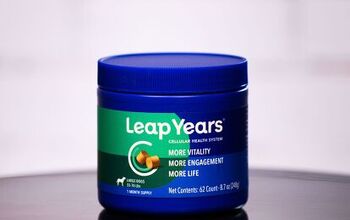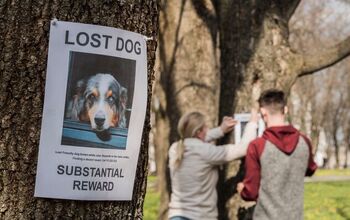According to ASPCA, These Are The Top 10 Pet Toxins of 2023

No matter how careful you are, accidents happen – this is particularly true when it comes to pet poisoning cases. Not only that cats and dogs have some uncanny ability to get into stuff that they’re not supposed to get into, but you also can’t always know what things could be a potential toxin to them. And believe us when we say, there are a lot of potential pet toxins in an average household!
The annual report by the ASPCA Animal Poison Control Center (APCC) only goes to prove this. Each year, they examine all the compiled data to determine which are the most commonly encountered pet toxins each year. It helps keep owners aware of the threats, and to keep vets always one step ahead. In 2023, the APCC was extra busy, having received hundreds of thousands of calls about items and substances that pets were exposed to. Incredibly, these substances totaled over 351,000!
Even though they were contacted about such an imposing number of potentially hazardous substances, they managed to narrow down the most common culprits and compile the list of top 10 pet toxins in 2023, which will serve as a great reminder of what to look out for.
- Over-the-counter medications, including cold and flu medicines, ibuprofen, acetaminophen, and vitamins and supplements. With 16.8% exposure, these medications are the number one threat in 2023. Almost every home has some sort of medications stored, and they aren’t always expertly hidden. Accidentally, pets can discover them and suffer many dire consequences if they ingest them.
- Human food and drink are almost equally as dangerous, with 16.2% reported calls. A lot of what we consume daily is toxic to pets. This can range from common items such as raisins, onions, garlic, grapes, or sweets, to more rare items such as protein drinks and bars, xylitol gums, and energy drinks. If your pet gets their paws on any of these, it can end up in an emergency vet visit.
- Prescription medications for humans are very dangerous to pets, and many reports were made in regard to inhalers, ADHD medications, heart medications, and similar. Prescription medications are often strong drugs and definitely not meant for pets.
- Chocolate is the number 4 threat for 2023. A staggering 13% of calls were related to this sweet. Dogs are mostly found consuming it as cats do not have sweet taste buds or the appetite of dogs. Still, chocolate is not meant for pets and can cause many side effects.
- Veterinary products are at number 5 with 8.3% reported exposures. Callers reported ingestion of chewable tablets or soft chews, many of them used for calming pets. Owners are urged to keep medicines locked away, as pets can like their sweet taste and go after them when you are not looking.
- Plants and fungi accounted for 8.1% of exposures. Dogs are inquisitive and can find these plants on their outdoor adventures. But many plants can cause a threat to dogs, so make sure to acquaint yourself with a list of toxic plants to look out for.
- Household products are also on this list, with 7.1% of exposures reported. Pets consumed various dangerous items, such as deoxidizer packets, batteries, and various miscellanea lying around the house. Be aware of what’s lying around that’s easy to reach.
- Rodenticides are a major threat to pets. People can use poisons to get rid of pests, but our pets don’t know that. If they ingest them, it can be extremely dangerous, leading to kidney failure, bleeding, and even death. When you are out on walks, always be careful what is lying around.
- Insecticides are almost the same. People use bug sprays, ant baits, and poisonous powders all over the place. Always make sure that the area you are in is free from anything that can be a threat to your pet.
- Recreational drugs are last but not least. With substances such as marijuana becoming increasingly legal, pets can come in contact with them as well. But there are also hallucinogenic substances such as mushrooms, especially psilocybin, and muscarine, which can be very harmful to pets.
It goes without saying that you should always be careful about the items in your house, and those outside of it as well. If you suspect that your pet ingested something harmful, contact a veterinarian as soon as possible. Every minute counts in cases of pet poisoning!

A proud mama to seven dogs and ten cats, Angela spends her days writing for her fellow pet parents and pampering her furballs, all of whom are rescues. When she's not gushing over her adorable cats or playing with her dogs, she can be found curled up with a good fantasy book.
More by Angela Vuckovic
























